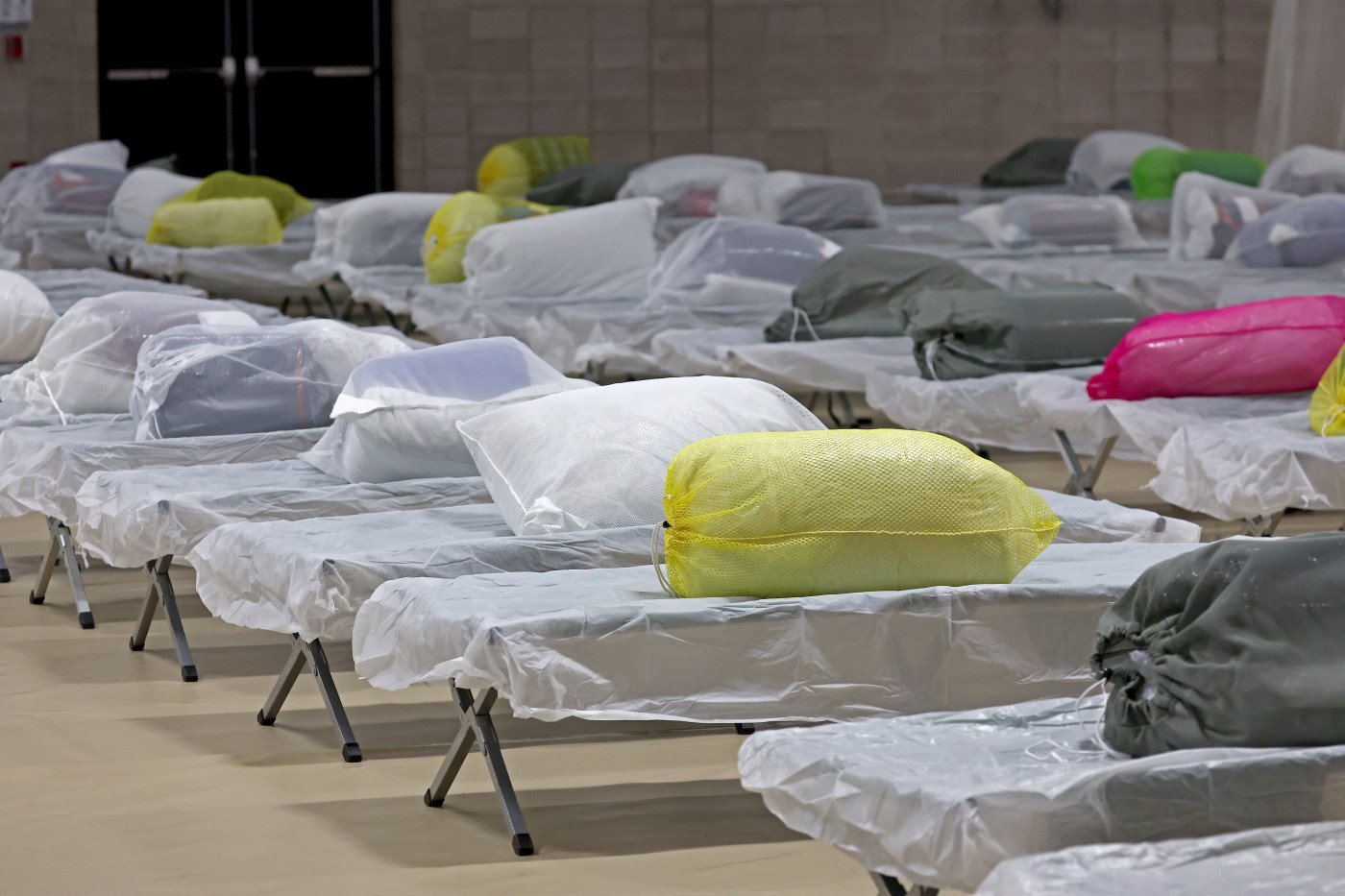
‘It’s total crap:’ Mass. Senators question nine month time limit on emergency shelter stays
A plan to limit stays in state-run emergency shelters to nine months drew mixed reactions from state senators across both sides of the aisle, with many questioning what happens when families run out of time and are left with few options.
A proposal to cap the amount of time migrants and local families can live in shelter cleared the House on a largely party line vote last week, with top Democrats arguing the system would collapse without meaningful administrative reforms. But some senators are not so sure about the plan put forward by the House.
Sen. John Keenan, a Quincy Democrat, said he was “hesitant” when he initially heard about the time limits because there is not a “good sense of what happens after nine months.”
“If they move out, what’s next? And presumably, another family will move into the system. So I don’t really know if there’s a cost saving as a result of it. But I’m open to the idea of limits or caps,” he said Thursday at the State House.
Sen. Ryan Fattman, a Sutton Republican, was more critical of the idea, and instead called on Democrats to put in place a residency requirement for those in shelters, a proposal that some say may be unconstitutional.
“It’s total crap,” Fattman said outside the Senate Chamber. “What does it do to solve the problem? What does it do? It doesn’t. All it does is it takes one person, moves them on, and then puts another person in and doesn’t stop the flow. And the flow is the problem. That’s the cost. So I just think it’s total baloney.”
House Democrats argued time limits are necessary in the face of declining tax revenues, little help from Washington, a seemingly never-ending demand on services, and an expected $2 billion shelter spend over fiscal years 2024 and 2025.
The House plan would put in place a nine month cap on shelter stays, which could be extended to a year if people have a job, are in workforce training, have a disability, are a veteran, or are at “imminent risk” of domestic violence.
“If we don’t get our hands wrapped around this from a logistical standpoint, financially, as the speaker said, it will collapse. It will not be able to be maintained long term,” House budget writer Aaron Michlewitz said last week.
But Democratic counterparts in the Senate are not completely sold that time limits are the silver bullet to the shelter crisis.
“In my opinion, having time limits or set dates are not solving the problem,” said Sen. Marc Pacheco, a Taunton Democrat. “The law needs to change at the federal level. And we need to have federal resources, not state resources, but federal resources to deal with a federal and a national immigration problem.”
Democrats have been increasingly willing in recent months to criticize Massachusetts’ federal delegation for what they perceive as a failure to successfully advocate for crucial aid that could alleviate fiscal pressures on Beacon Hill.
House Democrats argued that without help from Washington, a plan to cap shelter stays at nine months is a reasonable path forward. Republican and Democratic senators, however, still have questions about what happens after the time limit is reached.
Sen. Michael Moore, a Millbury Democrat, wanted to know whether families at the end of their time in shelter would end up on the streets.
“If you’re gonna just tell me a timeframe, explain to me how that’s really going to work. So, in theory, I’m going to say no, because I just don’t know how that’s going to interact with everything else that we’re doing,” he said outside the Senate Chamber. “I think we need a more comprehensive plan than just saying a nine month … cap.”
Sen. Liz Miranda, a Boston Democrat whose district includes the overflow shelter site at the Melnea Cass Recreational Complex, said nine months is not “sufficient.”
“Not a lot of things move in the commonwealth or in our cities in a nine month timeline,” she told the Herald at the State House. “We’ve talked extensively in the Senate about … what that looks like after nine months.”
Senate budget writer Michael Rodrigues said the chamber plans to take up the bill — which also includes a $245 million injection of state funds for the emergency shelter system — “very shortly” but declined to delve into any details ahead of a formal announcement.
“The emergency shelter system was designed to serve and support a population of families. Remember, this is primarily mothers with children. Primarily, not all. It was not designed to provide services to incoming migrants,” the Westport Democrat said. “I think there are some reforms necessary.”
Senate Minority Leader Bruce Tarr said the nine month time limit is “not the reform that we need” and the approach House leaders took “misses the opportunity for needed reform.”
Tarr said the “most obvious reform” is a residency requirement, and if lawmakers have concerns about constitutionality, they could ask the Supreme Judicial Court to weigh in on the matter before passing legislation.
“We ought to just step up to the plate and send a question to the SJC. This isn’t a problem that’s going to go away anytime soon and it isn’t an issue that’s going to go away anytime soon,” he said.


